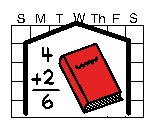We asked the TVCC ACS clinicians to share some of their "Top 5" AAC tips with all of you. Here's a selection of their comments:
Top AAC Strategies:
- model symbol use, especially core words
- look for opportunities for your child to communicate
- share how your child communicates with others
- tell your child what you think they are communicating and why
- brag about your child's ability to communicate (within earshot)
- Make sure the communication system is always available, " See child, see book/device" Linda Burkhart and Gayle Porter (Partner assisted communication strategies for children who face multiple challenges)
- Believe in your child
- Create a communication dictionary listing all of your child's communication behaviours and how to respond.
- Include your child in conversations that are about him/her.
- Encourage people to communicate with the child using AC rather than the adult or person with them.
If you have 5 minutes:
- set up your child's communication system
- plan opportunities in the day for your child to communicate
- provide an opportunity for your child to make choices
- ask a question or learn something new by looking online or in a book
- read to your child
- use no tech strategies to make choices
- co-construct a message to put on a single message device
- model core words
- play a game to encourage fun use of vocab or literacy
- I'm thinking of a word that rhymes with door; Guess "more", four", "store"
- I Spy things that start with the "b" sound....
- help your child practice a conversational routine to use
with the next person who comes into the room.
-
have your child share some news to/from home/school by programming a message in their SGD
-
model real-life writing with child e.g. "Look Suzie, we need some ice cream so mommy is going to put that on her shopping list"
more all done
want like
not stop
eat drink
go help
Top FAQ questions about AAC
- Will using AAC stop my child from talking or writing?
- In fact, numerous studies have found that the introduction of AAC frequently has a positive affect on speech; children who are given AAC often develop speech faster than they would have otherwise (Bodine & Beukelman, 1991; Van Tatenhove, 1987).
- How can I get an iPad? Can we do this on an iPad?
- We love iPads!!! However, they may not work well for everyone. Check out our past issue all about iPads for more information: I can...get connected!
- What is the best way to use the device?
- Every child is unique and has different things he or she may want to communicate. Gather information about your child's interests and consider his/her motivators.
- Why do we need to use AAC at home if we know what they want to say/do?
- Each time you shape your child's communication, you are paving the road to successful communication with their teachers, friends, and others.
- How do I find out what my child understands?Connect with your child's teacher and therapists. You may want to consider having a psycho-educational testing if you are having difficulty figuring out your child's learning strengths.
- I"m not comfortable with computers/technology, do I have to program it?
- If your child is an ACS TVCC client, contact your clinicians if you need additional support. There is also a variety on online resources to help you become more comfortable.
- What if child doesn't have strong preferences - how will we motive child to communicate? Shouldn't we start with requesting to go to the bathroom?
- Make a list of your child's favourite toys, foods and activities. Your child may not be motivated to communicate his/her bathroom needs.
Top AAC related websites:
- www.helpkidzlearn.com
- subscription based website ($16US/year). Provides mouse, touch screen, one and two switch accessible activities for children.
-
- resources related to AAC and young children
- www.priorywoods.middlesbrough.sch.uk
- mouse, touch screen and switch accessible FREE resources.
- www.tarheelreader.org/
- mouse, touch screen and switch accessible FREE reading related resources.
- http://www.starfall.com/
- activities for literacy development.
- Tumblebooks @ http://www.londonpubliclibrary.ca/kids
- online storybooks
- http://www.creativecommunicating.com
- subscription based adapted stories and other resources.
- http://www.accpc.ca/
- a federal, non-profit organization that undertakes social innovation projects to promote awareness, justice, enhanced quality of life and community participation for people who use AAC.
- http://prekese.dadeschools.net/BMD/activityspecific.html
- preschool related Boardmaker resources
- http://www.pisp.ca/video/index_how_to_videos.html
- provincial integration support program. great ideas for simple speech generating devices.

AAC Awareness Month
Check out these great ideas to celebrate AAC Awareness Month on this blogspot:







No comments:
Post a Comment